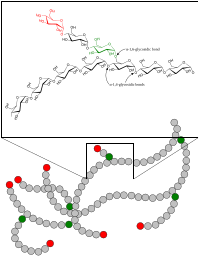Glycogen Storage Disease Type 4

Glycogen storage disease type 4 (GSD 4) is part of a group of disorders which lead to abnormal accumulation of glycogen (a storage form of glucose) in various parts of the body. Symptoms of GSD 4 usually begin in infancy and typically include failure to thrive; enlarged liver and spleen (hepatosplenomegaly); and in many cases, progressive liver cirrhosis and liver failure. In rare cases individuals may have a form with non-progressive liver disease, or a severe neuromuscular form. GSD 4 is caused by mutations in the GBE1 gene and is inherited in an autosomal recessive manner. Treatment typically focuses on the specific symptoms that are present in each individual.